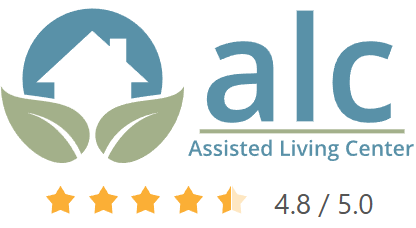
PRESS RELEASE: New Long-Term Care Insurance Benefit Plans May Offer Affordable Option for Paying for In-Home Care, According to Private Care Association
Southern Pines, N.C. – February 28, 2014 – Elder care experts advise that the emergence of new strategies enabling consumers to convert their life insurance policies into long-term care insurance benefit plans could offer millions of Americans a viable strategy for being able to afford the cost of paying for in-home private care.
“Two out of every five American adults are caring for an older loved one who is aging in place, a number that continues to increase each year as the demographics shift toward an aging population,” said James Mark, president of the Private Care Association (PCA), the national association for private duty home care registries and referral agencies since 1977. “These families know first-hand the need for access to in-home private caregivers whom they can trust to help care for their loved ones. Unfortunately, Medicare and most private health insurance plans do not cover the cost of non-medical in-home care.”
In response to this growing need, the U.S. Department of Health and Human Services Administration on Aging (www.longtermcare.gov) has sought to inform Americans about a variety of options for using life insurance policies to help pay for long-term care services. These options include combination life/long-term care insurance policies, accelerated death benefits products and life settlements options for life insurance policies that might otherwise lapse.
Long term care benefit plans provide consumers who need care today — or in the very near future — to sell life insurance policies to a third party and have benefits held in an irrevocable trust that will pay benefits directly to the long term care providers they choose to provide care. This option differs from the accelerated benefit rider on many life insurance polices that will advance benefits if someone meets the HIPAA definition of chronically ill and has a life expectancy of less than 12 months.
“These new products convert a life insurance policy death benefit into an asset with living benefits that can be used to pay for in-home care services,” said Mark. “This is a promising financial option that can almost immediately offer relief for seniors and their family members who are struggling with the challenge of being able to afford the cost of private duty caregivers.”
A 2013 study published by the AARP Public Policy Institute concluded that the supply of family caregivers is unlikely to keep pace with future demand in America. The study found that the number of potential adult family caregivers for each American over the age of 80 is expected to plunge from seven potential caregivers in 2010 to just four potential family caregivers by 2030 and then down to as few as three potential family caregivers by 2050.
PCA member registries conduct background checks, verify credentials and check the professional references of caregivers before they are referred to consumers. At the same time, since the caregivers are self-employed, a caregiver registry can save families anywhere from 10 to 30 percent on their in-home care expenses. For more information about private duty home care registries and how to find in-home caregivers at an affordable price, please go to www.privatecare.org.
About PCA
Since 1977, the Private Care Association (PCA) has been the voice of private duty home care. PCA’s membership is made up of home care registries that refer self-employed caregivers to provide assistance with activities of daily living such as bathing, dressing, lifting/transferring, continence care, feeding/meal preparation, companion care, homemaker services and nursing services in the client’s home. The PCA has an involved government relations program that actively presents its position to public policymakers at the state and federal levels and, as the national voice for home care registries, the PCA promotes the interests of the private duty home care industry, advocating the consumer-directed model of care and consumer choice. For more information, please go to www.privatecare.org.
###








